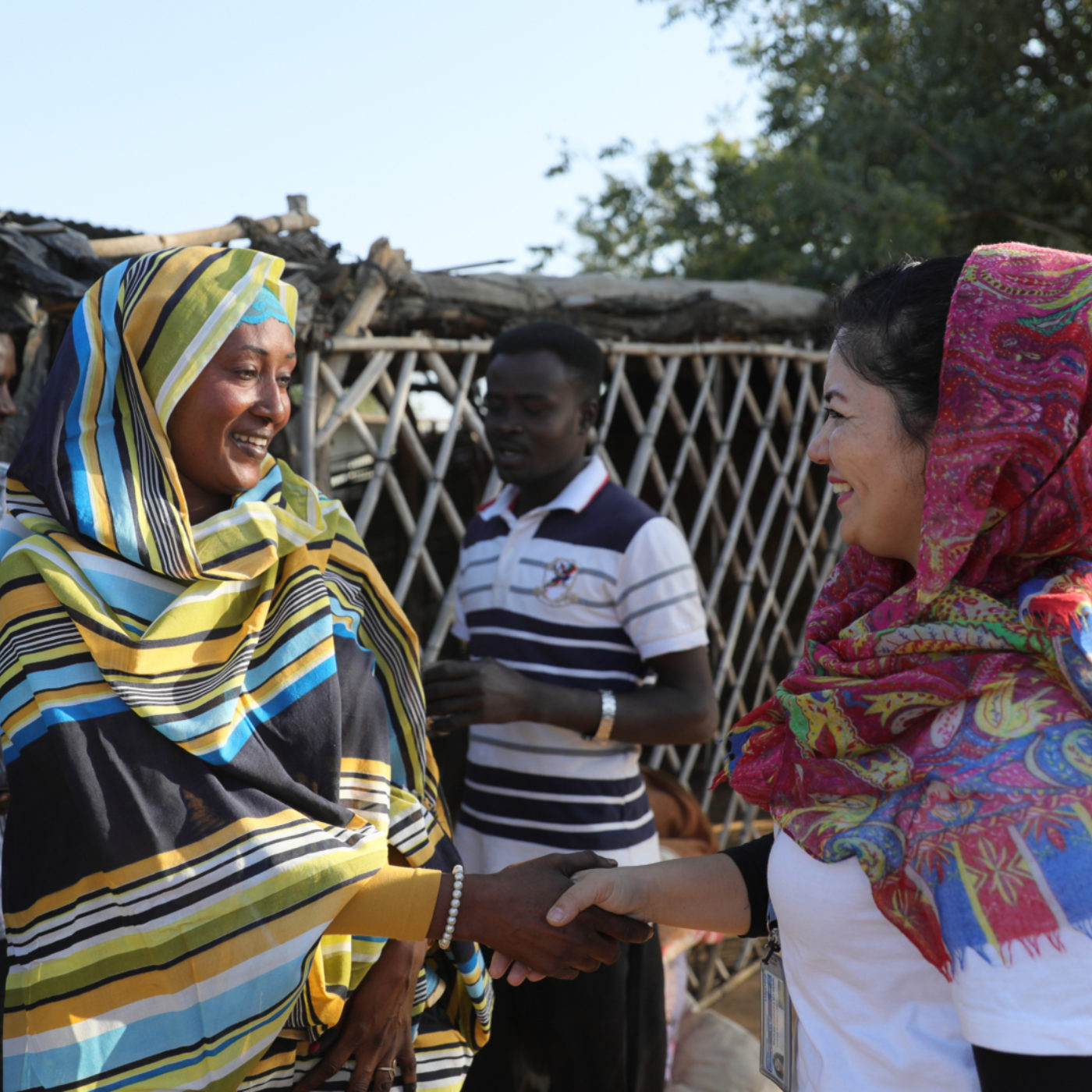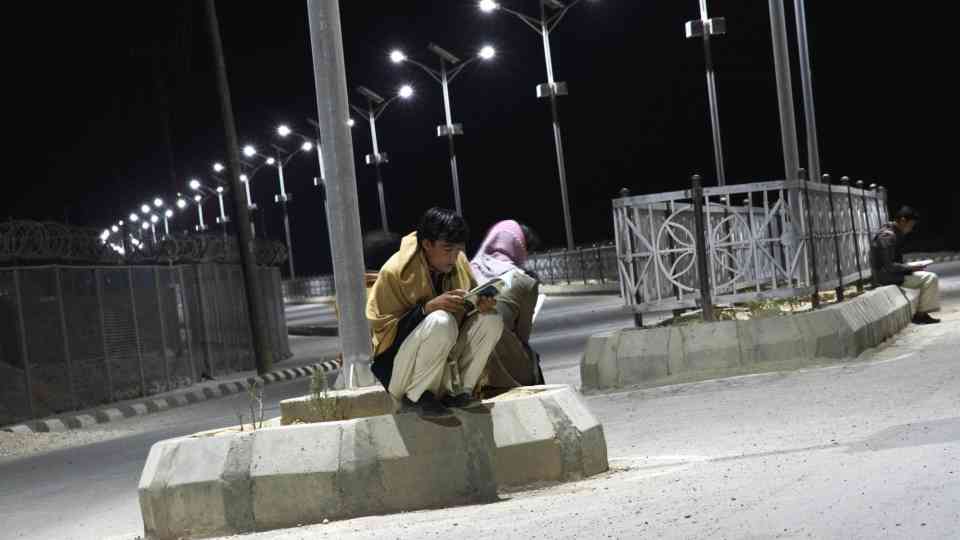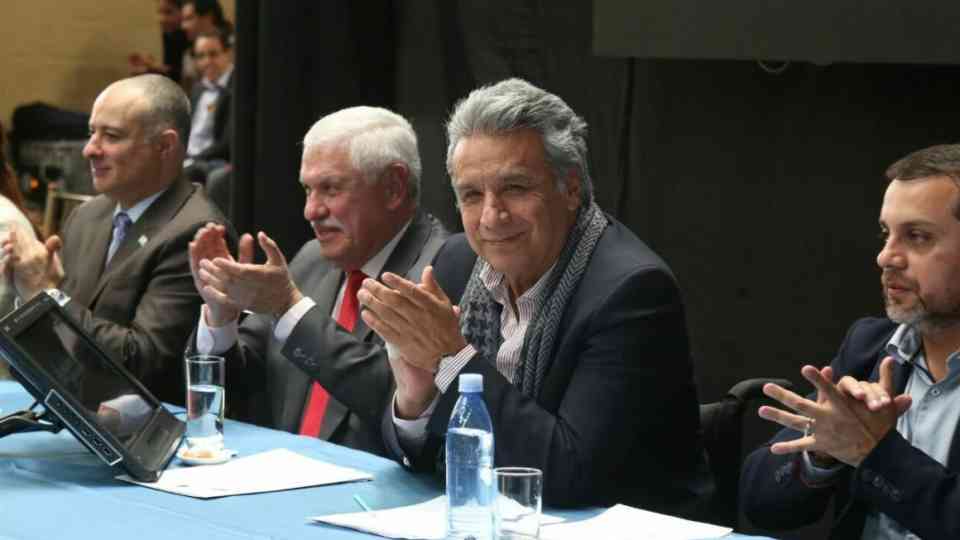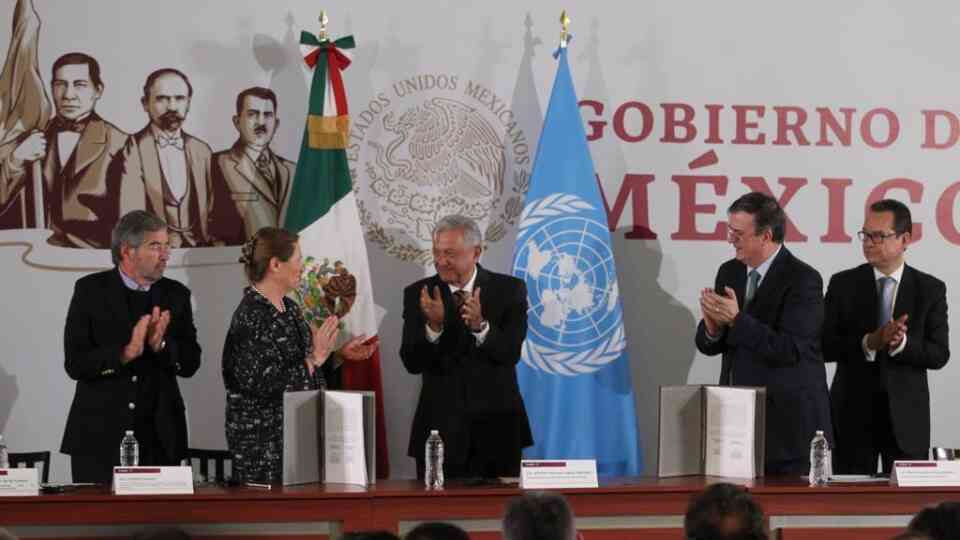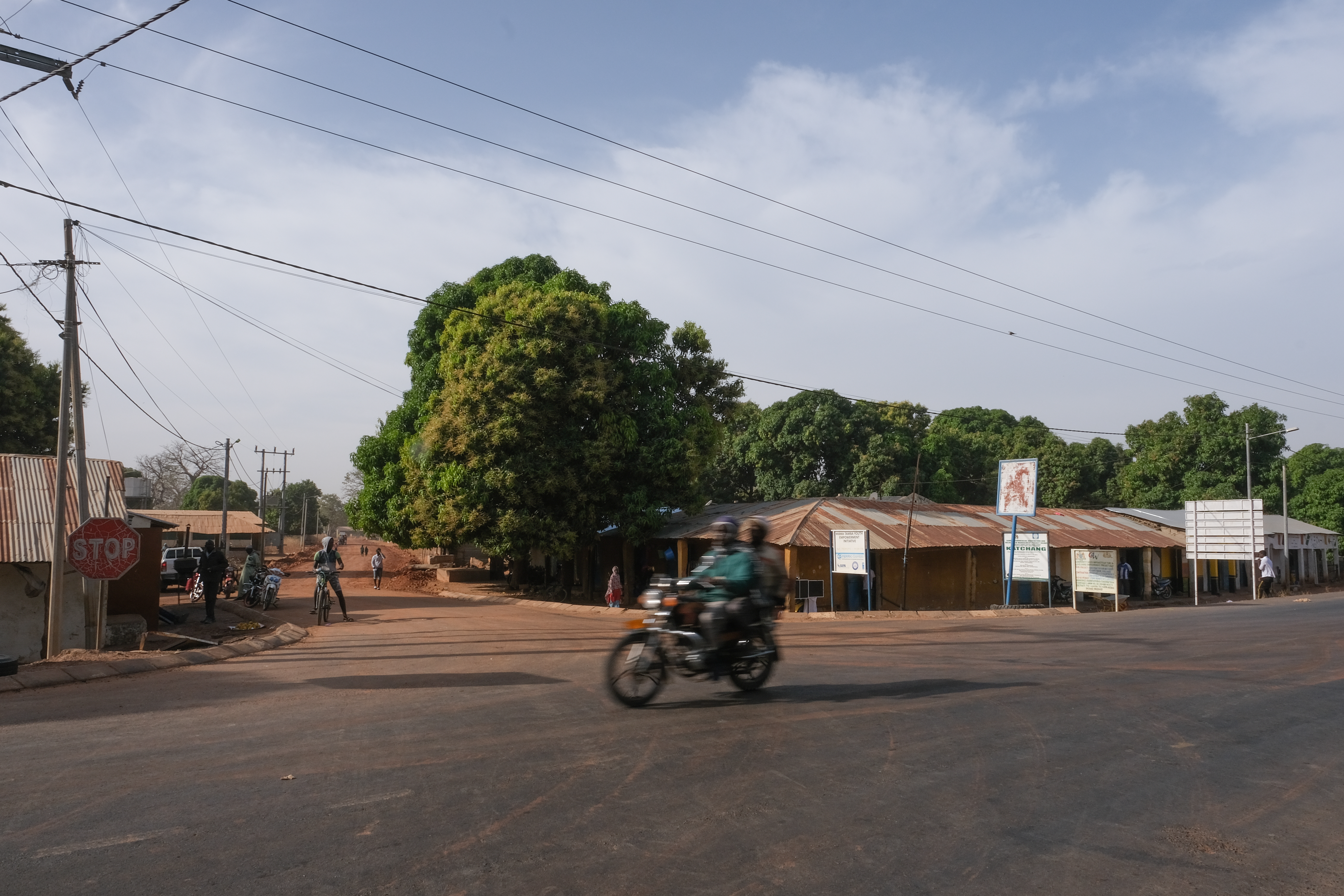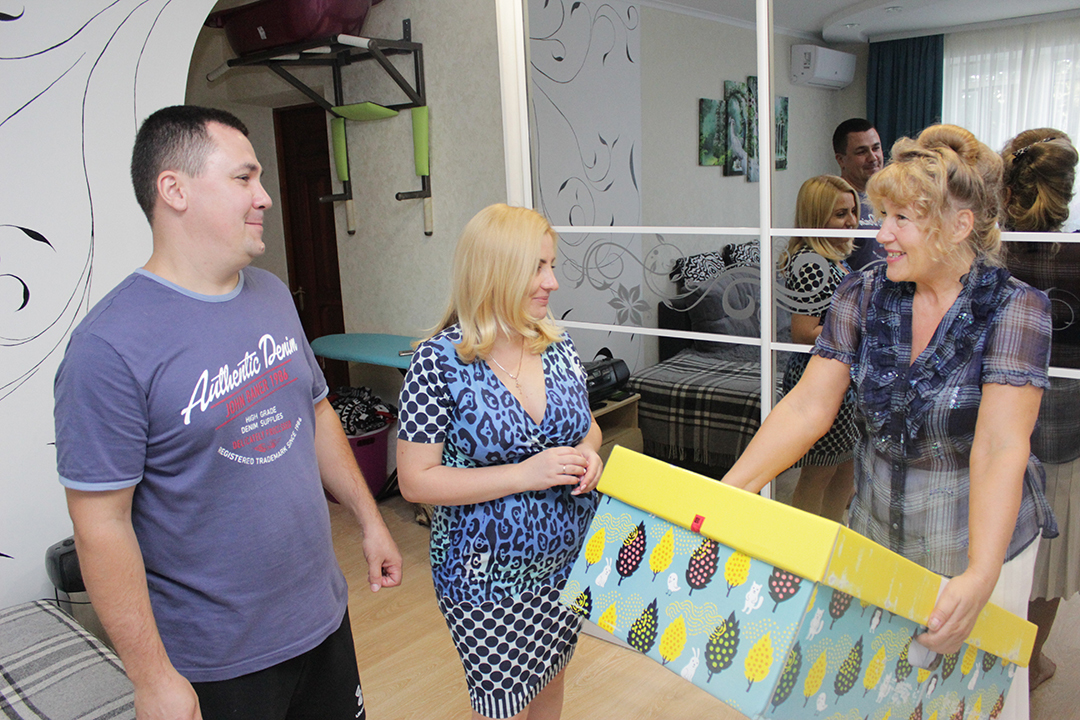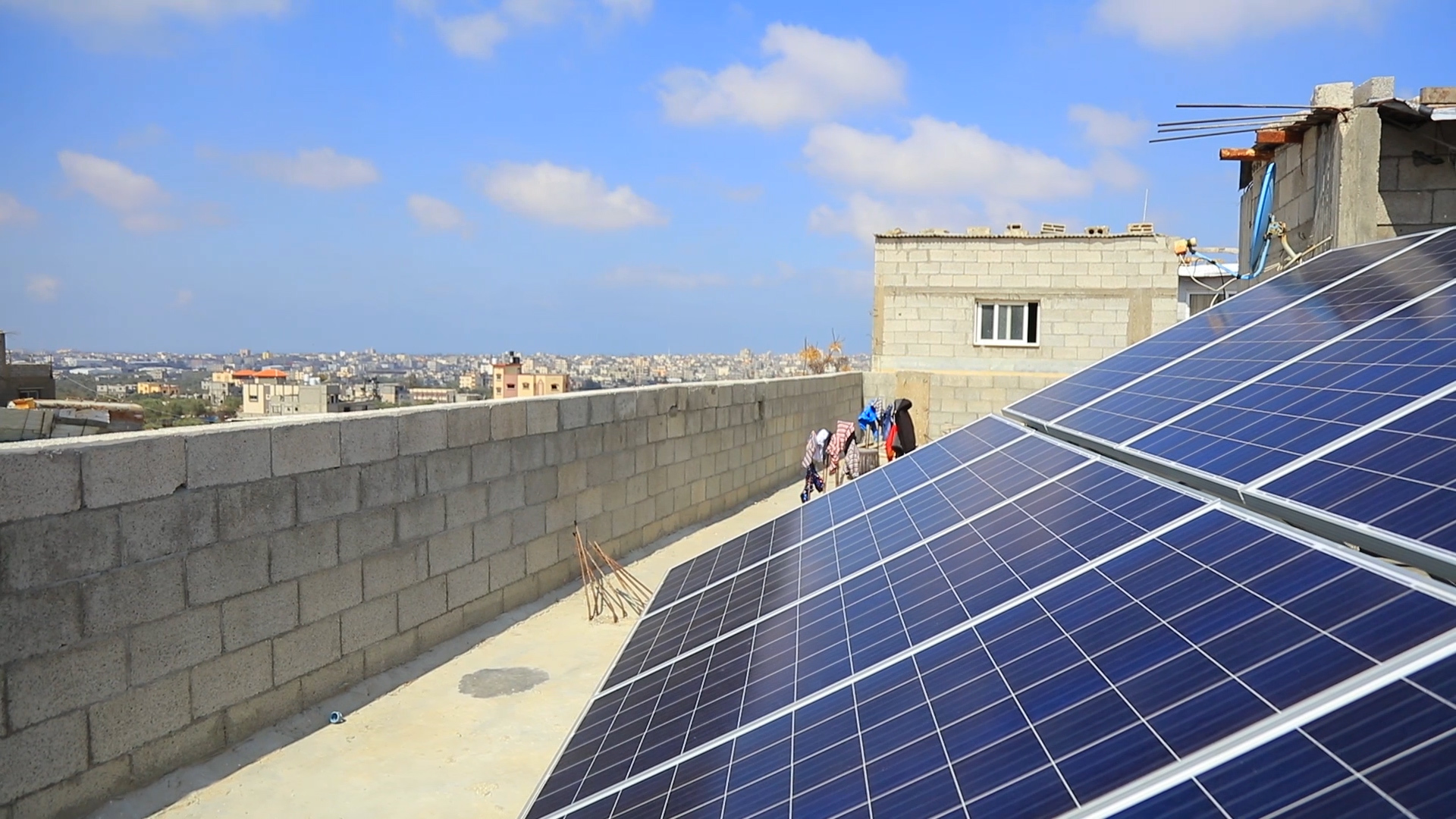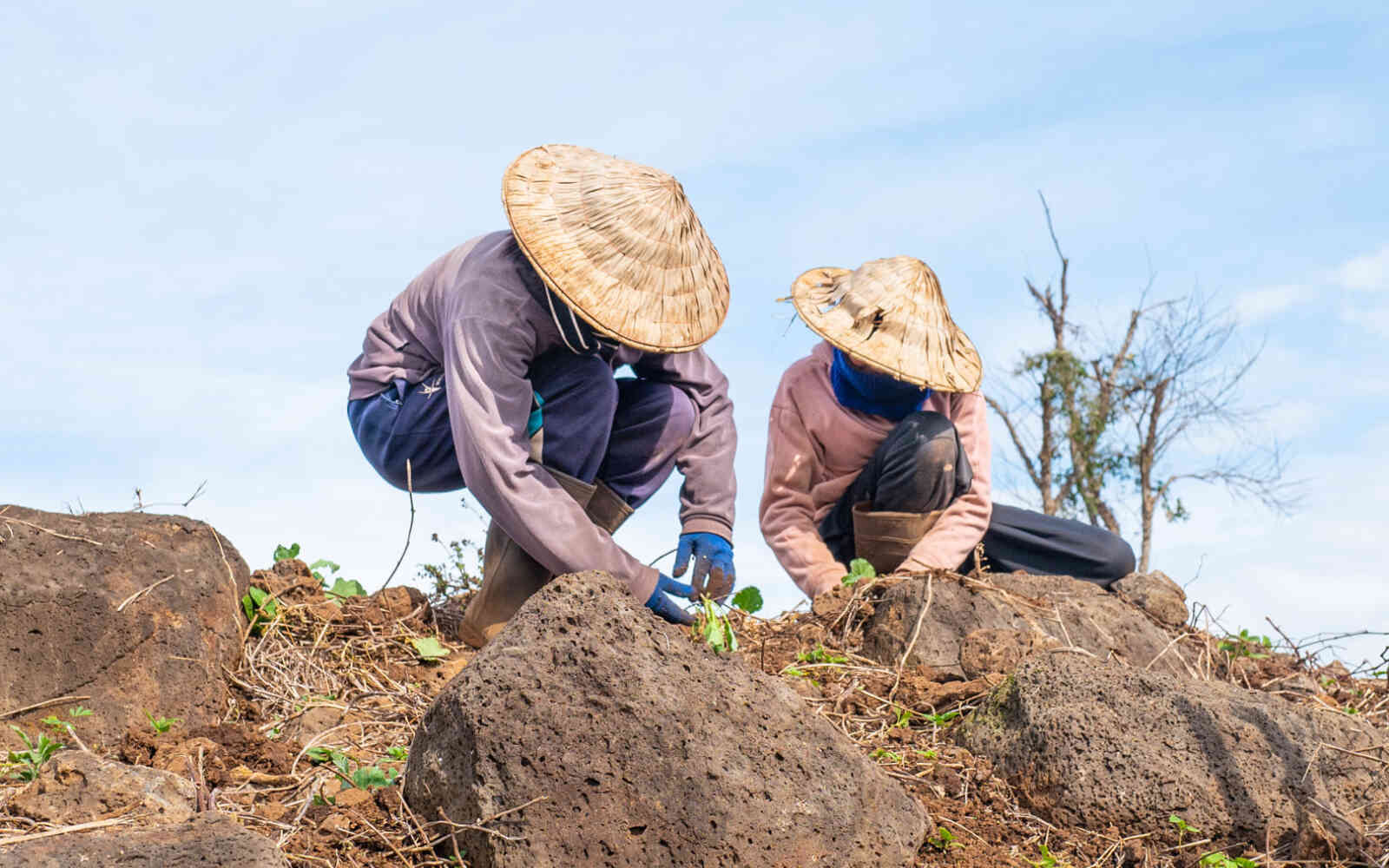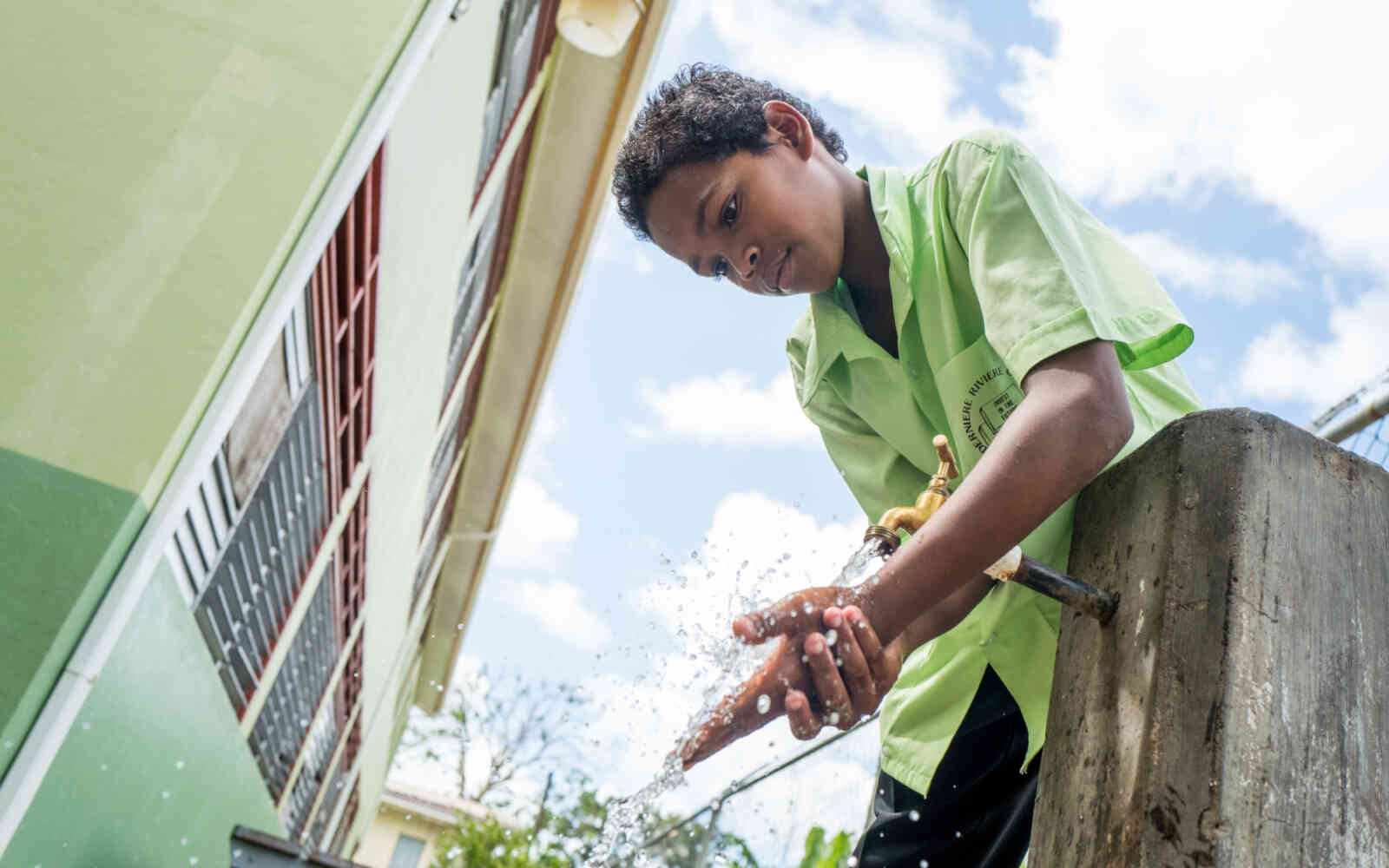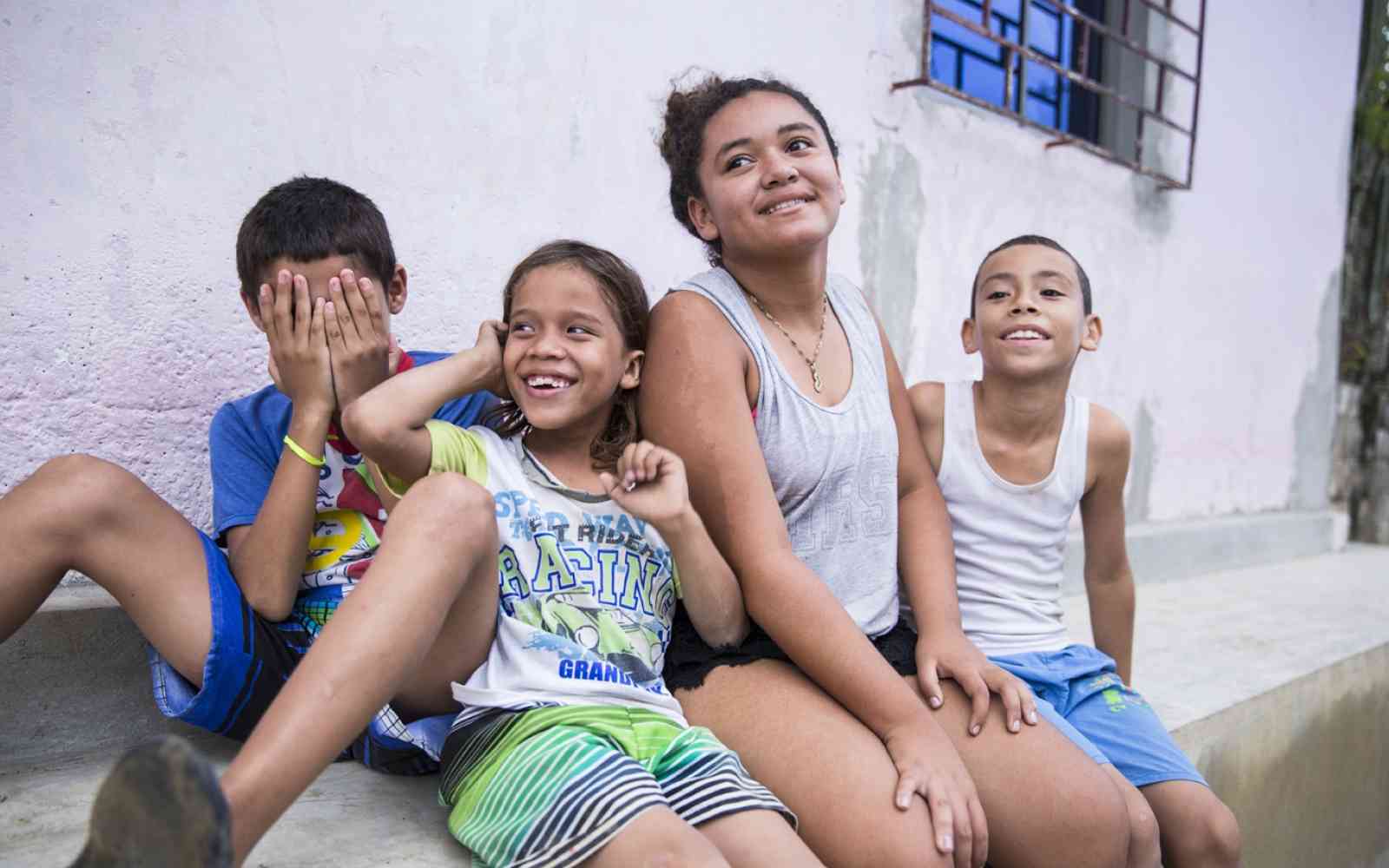The United Nations Office for Project Services (UNOPS)

Only by bringing everyone to the table, can we address everyone's needs
Driving positive change, by working together
Words by Grete Faremo - Under-Secretary-General and UNOPS Executive Director
At UNOPS, we remain determined that we can all drive positive change, by working together, being bold and embracing new ideas.
Our annual sustainability report is testament to our success. Across more than 80 countries, UNOPS-supported projects created around 5 million days of paid work for local people, of which almost 2 million were undertaken by women and young people. We delivered $2.3 billion worth of support, the majority of it in the world’s most fragile and conflict-affected states.
Our focus remains resolutely on implementation. As a resource, we support Member States, the UN family and partners to deliver on the Sustainable Development Goals.
UNOPS teams around the world are currently working tirelessly to mitigate the impact of the COVID-19 pandemic, from providing emergency health procurement and vital health infrastructure, to supporting countries in planning their longer-term recovery.
In this and our other work, our focus remains on building peaceful and prosperous lives for everyone while protecting our planet. And that will only be possible if we all work together.
2019: in numbers
Our Priorites

Our Priorities
Delivering on the 2030 Agenda during the decade of action
Delivering on the 2030 Agenda in the Decade of Action
We are now in a decade of action and we must all play our part. Both the public and private sectors must be fully utilized to combine our skills, knowledge and help fund and build the future of development and accelerate the achievement of the SDGs.
Financing is a critical challenge for the achievement of the SDGs. All countries – and developing economies in particular – will need large-scale investment to build resilient and sustainable infrastructure, expand capacities and implement new technologies that will help the world meet the promises of the 2030 Agenda.
SOME OF OUR INITIATIVES...

Our Partners
Download the PDF to see our full partner breakdown
UNOPS is dedicated to supporting its partners by providing services that increase the effectiveness of peace and security, humanitarian and development projects worldwide.
To advance the 2030 Agenda and support the achievement of the SDGs, we aim to engage in collaborative partnerships with a focus on sharing our expertise in infrastructure, project management, procurement, human resources and financial services.
For the fourth year in a row, UNOPS support to governments reached a record high in 2019, representing almost $1 billion dollars of our portfolio for the year and indicating a clear demand for our services. Government partners included Argentina, Guatemala, Japan, Peru, Qatar, Sweden, Ukraine, the United Kingdom, and the United States.
Within the UN family, which represented 26 per cent of our portfolio, our largest partner was the UN Secretariat, specifically the Department of Peace Operations, to which we provided a range of services.

Sustainability
UNOPS has been climate neutral since 2012. Download the PDF to see our full emissions breakdown for 2019 and find out more.
Sustainability is at the forefront of UNOPS work around the world. We aim to help our partners maximize the positive impact and sustainability of their projects, to better serve communities in need.
HOW WE MEASURE OUR SUCCESS
The Global Reporting Initiative (GRI) framework measures the impact of UNOPS work on the environment and the societies in which we work, underscoring how our operations contribute to sustainable development around the world.
Through GRI, we speak a common reporting language to both those inside and outside of the United Nations. Here we reaffirm our commitment to measuring ourselves against international standards.
Our Mission

Our Mission
To help people build better lives and countries achieve peace and sustainable development.
How we work
We are focused on implementation, committed to UN values and private sector efficiency.
We are the only part of the UN not receiving core funding. Our partners call on us to supplement their own capacities, improve efficiency and transparency, reduce risks, boost cost-effectiveness and increase quality.

OUR SERVICES
Each of our service lines has a focus on sustainability and national capacity development. Our financing model promotes lean, effective delivery.
Our flexible structure and global reach means that we can quickly respond to partner needs while gaining the benefits of economies of scale.
We tailor support to the needs of our partners, delivering a key element of a project, offering expert advice, or managing entire projects or programmes.




HOW WE CONTRIBUTE
UNOPS contributes to broader efforts to help partners realize the Sustainable Development Goals (SDGs) through three focus areas.
Enable partners to do more with less
Enable partners to do more with less through efficient management support services, delivered locally or as global shared services.
For example, UNOPS supports mine action, humanitarian, stabilization and explosive management activities, as well as capacity-building on national actors and United Nations missions, and the weapons and ammunition management work of the UN Mine Action Service (UNMAS) and partners in 19 countries and territories around the world. Totalling around $240 million, UNOPS helped its main partner, UNMAS, deliver a range of results, including:
- In Darfur, 264 dangerous areas were assessed and closed in 1,821 villages. More than 115,000 small arms ammunitions were destroyed, while 324,663 beneficiaries received mine risk education.
- In Iraq, 426 police officers, of which 85 were women, were trained to identify, mark and report explosive hazards and more than 446,000 people received risk education and awareness training in schools, internally displaced persons camps and other high-priority areas.
- In Mali, instructors who had previously been trained on improvised explosive device threat awareness went on to deliver more than 50 training sessions to their own troops and more than 250 survivors of explosive incidents were provided with assistance.
- In Nigeria, a pilot project targeting vulnerable youth in Maiduguri, Borno State, trained 50 young women and 50 young men as trainers and peer educators in explosive ordnance risk education.
Help people achieve individual, local, national and global objectives
Help people achieve individual, local, national and global objectives through effective specialized technical expertise grounded in international norms and standards.
The Safety Net and Skills Development Project, a government of South Sudan project funded by the World Bank, provided cash-for-work activities through the implementation of minor public works. The UNOPS component of the project provided access to income opportunities and temporary employment to 36,158 poor and vulnerable people. The cash transfer was used to pay school fees, support relatives, and buy food, clothing, soap and medical necessities, among other things. Eighty-nine per cent of beneficiaries indicated that the cash transfers have helped move them a step closer to starting small scale income-generating activities. In 2019, 62 per cent of UNOPS infrastructure projects reported an output enabling equal access, 60 per cent enabled equal access for women and 46 per cent enabled persons with disabilities.
Support countries in achieving the 2030 Agenda.
Support countries in expanding the pool and effectiveness of resources available to achieve the 2030 Agenda. UNOPS is working to further partnerships between the public and private sectors. One way we do this is by partnering with private sector organizations whose resources and expertise can complement our work in countries and regions around the world.
For example, UNOPS continued to develop its Sustainable Infrastructure Impact Investments (S3I) initiative and explore opportunities for collaborative partnerships to mobilize alternative funding sources for the 2030 Agenda, particularly in the areas of affordable housing, renewable energy, and water and sanitation.
UNOPS S3I committed to building more than 300,000 sustainable and affordable homes in Ghana and Kenya, working closely with the respective governments of those countries. These homes will incorporate green technology and will be built using local skills and equipment – providing thousands of new employment opportunities for local people and making a significant contribution to local economic development. Similar projects were also announced in 2019 in Pakistan and the Caribbean. In total, UNOPS has committed to help build more than 860,000 homes over the next decade, making it one of the largest and most ambitious affordable housing programmes the world has ever seen.
Our Projects

Our Projects
UNOPS helps its partners provide peace and security, humanitarian and development solutions to improve lives around the world.
Our People

Our People
We work hard to recruit and retain the best expertise.
During 2019, UNOPS executive leadership took decisive action in order to meet the gender parity targets. Download the PDF to see the full breakdown across 2019.
GENDER BALANCE
Our partners rely on our professionalism, skills, expertise and innovative ideas to successfully complete projects in some of the most challenging locations around the world.
As members of the UN family strive towards gender equality, we report our personnel data and turnover rate by gender. This helps us to better identify issues and take targeted steps to improve.
In December 2018, 39 per cent of UNOPS personnel were women. As of 1 January 2020, 43 per cent of UNOPS personnel were women.
We recognize that we have work to do to achieve gender parity at UNOPS and we are committed to addressing this situation.


UNOPS INSIGHTS
Ideas. Analysis. Solutions.

Diseases without borders
Infectious diseases don’t respect national borders. To eradicate them, we shouldn’t either.
Gender parity is necessary when working in challenging locations
Humanitarian aid and development projects often take place in difficult locations. The need for a diverse and gender-balanced workforce to implement these projects can’t be ignored.
